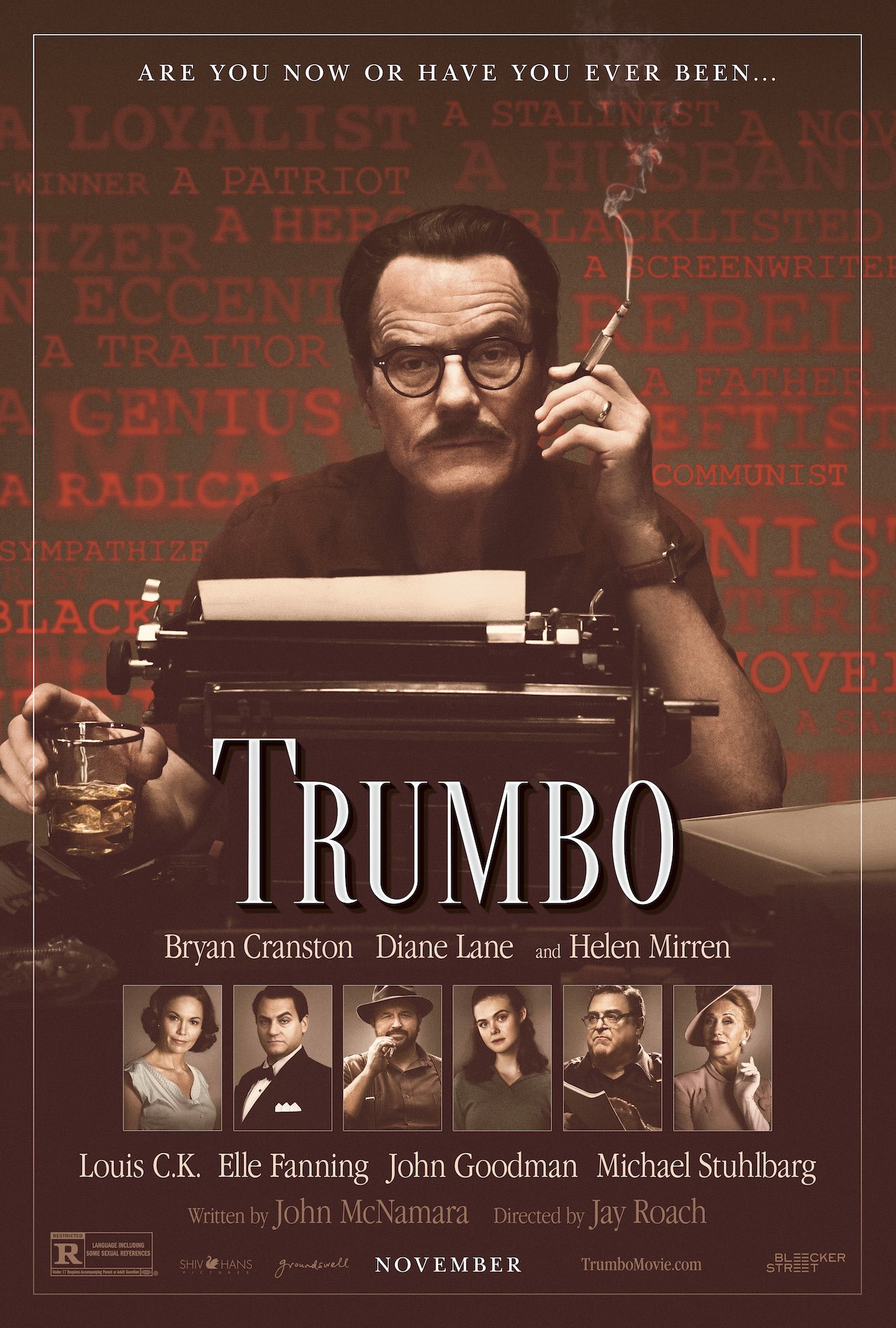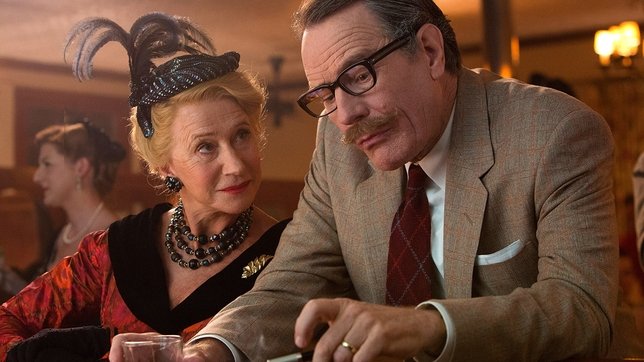Film Review | Trumbo Illuminates a Dark Period in Hollywood History

A subject that Hollywood is strangely silent about is itself. While there are great dramas set in and around the sordidness of the movie business (Mulholland Drive, Sunset Boulevard, The Aviator), screwball comedies about making movies (Son of Rambo, Barton Fink and surely the Coens’ upcoming Hail, Caesar!), straight up biopics (My Week with Marilyn and Hollywoodland) and films that explore just how powerful the medium can be as an instrument for real life change (Argo, Stella Days, and The Last Picture Show), however these are quite few and far between. Surprising really, because truth, as the old cliché goes, is often stranger then fiction, and the decadent hyper reality of Hollywood is full of human dramas that put to shame even the most eccentric art house picture. Jay Roach’s Trumbo unsuccessfully attempts to combine the types listed above in an effort to paint a picture of one of Hollywood’s most interesting figures.
Taking place in the decade between 1947 and 1957, Trumbo follows the exploits of screenwriter Dalton Trumbo, played expertly by Bryan Cranston. A baker-turned-intellectual-turned screenwriter, Trumbo was one of the highest rated scribblers in Hollywood’s Golden Age. When Senator Joe McCarthy claimed, in an effort to save his own career, that Hollywood was full of communists, Trumbo was one of many people in the movie business brought before the House of Un-American Activities (HUAC) for his socialist sympathies. After spending a number of years in prison, the only work he can find is writing B-movies.
Bryan Cranston has been nominated for an Academy Award in what is an absolutely dazzling lead performance. In some ways Breaking Bad made a lot of us forget what made Cranston’s Hal in Malcolm in the Middle so memorable; marvellously subtle comic timing and his ability to believably change his demeanour in seconds. Trumbo gives him an opportunity to flex these muscles. Cranston’s Trumbo is a complex figure – principled, eccentric, talented, witty and occasionally frustratingly dogmatic. It’s a well rounded performance and many can’t wait to see Cranston take on another leading role. Similarly, Diane Lane and Dean O’Gorman exude old school glamour as Trumbo’s long suffering wife Cleo and actor Kirk Douglas respectively. This is matched in the film’s production values. The whole thing looks utterly magnificent, with the period costumes and cars looking absolutely gorgeous, complemented by Theodore Shapiro’s noirish score. Less enjoyable are Helen Mirren as Hedda Hopper, a gossip columist and Trumbo’s nemesis, and Louis CK as Trumbo’s sidekick Airln Herd (a composite character). Mirren’s Hopper comes across entirely as a well-heeled society vulture, completely one dimensional. The viewer never learns why she’s a dogged opponent of socialism; at times she quite literally stares into the camera and announces what she plans to do. Similarly, Louis CK struggles in a rare dramatic role. The comedy scenes he shares with Cranston are absolutely fantastic, but the more dramatic ones are tonally all over the place. At one point he reveals that he has cancer, and his announcement is so mishandled it recalls a similar scene in Tommy Wiseau’s The Room.

The flaws in CK’s acting are in many ways reflective of the flaws that exist in the film as a whole. Trumbo has no idea what it wants to be: a light drama about an underdog, a comedy about an eccentric man’s persistence, a serious drama about the dangers of social witch-hunts or an examination of cinema’s influences. There’s no reason why the film can’t be all of these things, but they’re simply layered together so clumsily that it just doesn’t work. The result is quite shallow, nothing really gets examined in depth. There’ll be a scene that hints at the wider themes and effect of Joseph McCarthy’s determination to find communists in the movie business, followed by a scene of physical comedy that feels like it’s from a completely different film. On top of these there are exchanges that are pure exposition. Characters literally explain what socialism is, or how the studio system works. This often interrupts snappy, quick fire, dialogue that actually plays to a number of the actors strengths (notably Cranston and CK). The film ends with a flash forward, with Trumbo reading a speech about the effect of this Hollywood Blacklist. Tonally, it’s a dry, humourless scene and Cranston is fantastic in his delivery, but it’s utterly at odds to the proceeding twenty minutes.
There’s nothing outright poor about Trumbo, but there is a much better film in the ingredients of the final product. Cranston, a steady rock amid much tonal unevenness, is really the only major take away from the finished product. At one point in the film Trumbo lists the pros and cons of accepting an award for a film he couldn’t put his name on. It’s very unlikely the makers of Trumbo will have to worry about drawing up a similar list. 6/10
Trumbo is in cinemas on February 5th. Check out the trailer below.
[youtube id=”jLuxQhdUqLY” align=”center” autoplay=”no” maxwidth=”750"]
Featured image credit Source

